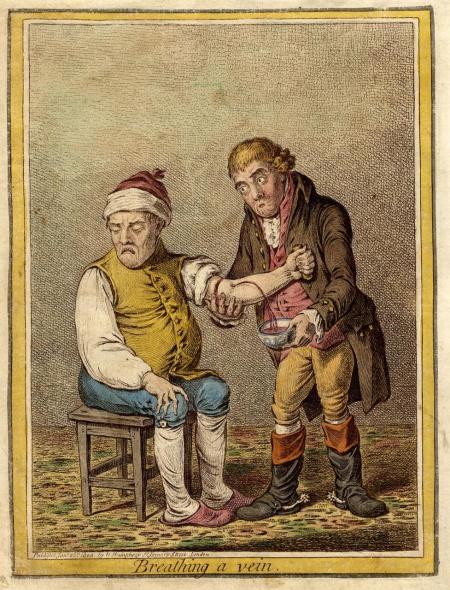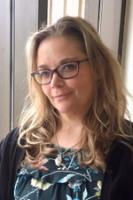
American Antiquarian Society
185 Salisbury Street
Worcester, MA 01609
United States
The 24-hour news cycle and the consumption of an endless variety of media seems to have reached its apex in recent months with COVID-19.The perpetual barrage of articles, memes, and debates taking place in both traditional and social media outlets—as well as consumers’ seeming inability to turn away from it—has led to the coining of a new term: “doomscrolling.” But before instant communication and digital technology made doomscrolling possible, how did people get information about epidemics and pandemics? Who was providing that information, for what purposes, and in what print mediums? Who had access to these resources? How did people respond to them? In this panel presentation and discussion, three scholars will discuss case studies spanning 150 years examining the print culture surrounding epidemics and pandemics in pre-twentieth-century America. From diphtheria to yellow fever to cholera, from medical practitioners to Indigenous writers to ordinary citizens, these case studies provoke thoughtful insights into how Americans have responded to disease, past and present.
Dave Paul Nord will focus on two case studies of epidemics as news in eighteenth-century America. The first examines how three Boston writers systematically gathered, analyzed, and published information about a diphtheria epidemic in New England in 1735–36. The other is about how Philadelphians, both elites and ordinary people, read, wrote, shared, and argued about the news during a yellow fever epidemic in Philadelphia in 1793. Both of these dramatic news events appeared in newspapers, but they also involved other print and non-print media.
The spread of cholera in 1832 mystified doctors and the general public in America. In the absence of definitive answers about what it was and how it traveled, editors of popular publications and the poets they published joined the ranks of doctors pursuing information and offering theories. In this talk, Sarah Schuetze will focus on the imaginative texts that resulted, including poems written in the voice of cholera itself and one editor’s description of sick people he examined for himself in Paris hospital, and how they portrayed cholera as both attractive and repellent.
Kelly Wisecup will examine how Indigenous writers placed experiences of disease within broader histories of colonialism, insisting that readers understand epidemics as part of disruptions to Indigenous social and environmental relations. Focusing on printed histories published and circulated by Indigenous writers in the late nineteenth century, Wisecup examines how these writers used print to provide tools for surviving colonialism.

Nord is professor emeritus of journalism and adjunct professor emeritus of history at Indiana University. He is former interim editor and associate editor of the Journal of American History. Nord’s research interests lie in the history of journalism, religious publishing, and readership. In addition to many journal articles, he is the author of Faith in Reading: Religious Publishing and the Birth of Mass Media in America (2004) and Communities of Journalism: A History of American Newspapers and Their Readers (2001), and coeditor of A History of the Book in America, Vol. 5: The Enduring Book: Print Culture in Postwar America (2009). At AAS, Nord has been involved with the Program in the History of the Book in American Culture (PHBAC) for many years. In 2008 he was Mellon Distinguished Scholar in Residence at the AAS, and in 2015 was codirector of an NEH Institute at AAS titled “The News Media and the Making of America: 1730–1865.”

Sarah Schuetze is an assistant professor of English and gender and women’s studies at the University of Wisconsin–Green Bay. Her work on historical disease and disability has appeared in Early American Literature, Early American Studies, Legacy, and the Arizona Quarterly. She is currently coediting a special topics issue of Early American Literature called “Reframing 1620” and working on her manuscript “Calamity Howl: Fear of Illness in Early American Writing, 1620–1832.” Schuetze was an AAS-NEH Fellow at AAS in 2017.

Wisecup is an associate professor of English and affiliate of the Center for Native American and Indigenous Research at Northwestern University. Her recent publications include the coauthored “Completing the Turn: An Introduction to the Joint Forum on Native American and Indigenous Studies Materials and Methods,” published in the William and Mary Quarterly and Early American Literature. She is also coeditor, with Lisa Brooks, of a Library of America volume of primary texts about the Plymouth colonists’ settlement on Wampanoag homelands, and she is completing a book about Indigenous interventions into archives, forthcoming from Yale University Press. Wisecup was a Peterson Fellow at AAS in 2014–15.

